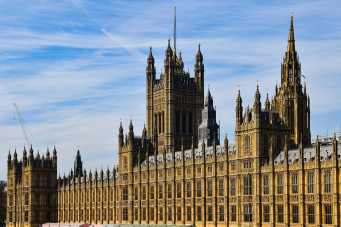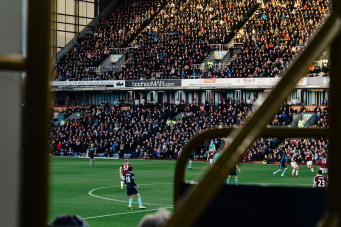
In The Frame – January ’16
Slowing growth in the United States means Netflix must look to expand internationally and is targeting India in the next phase of its global expansion. High-speed internet connectivity is becoming increasingly available to the country’s 1.3 billion people, a fifth of whom are already online.
Netflix originals, including Making a Murderer, Narcos and House of Cards, are ranked among IMDB’s top-rated TV shows and the company is now regarded as the biggest broadcaster in the world. The company now has nearly 75 million worldwide subscriptions – and a rising share price.
But that’s not stopping HBO, who are keen to take on Netflix, as well as other over-the-top (OTT) services such as Amazon and Hulu, as this month they launched a new children’s section in its mobile app and programming on its TV network that includes popular shows like Sesame Street, The Electric Company, and Pinky Dinky Doo. Netflix launched a “Kids” section in 2011 while Hulu introduced a similar area a year later.
HBO isn’t the only OTT provider to step up its efforts: Time Warner is making full seasons of more shows available on demand as it, too, attempts to take market share from Netflix.
Vodafone Ireland have launched television services for the first time in the Irish Republic while here in the UK, Sky have revealed the cost of Sky Q. The base cost of the Sky Q package will be £42 per month and the premium Sky Q Silver device will cost £54 per month. Sky Q is the broadcaster’s new entertainment system which was launched in November 2015, features up to 12 tuners, 12TB of storage and lets viewers record up to four live shows while watching a fifth.
Finally, studies reveal that more than 60 per cent of American broadband households now have at least one OTT subscription, while a third of UK broadband households pay for a similar service. Also, British children are spending more time online than watching television for the first time. Major UK TV companies also face the growing threat of the millennial generation’s preference for OTT services over pay-TV.
BBC News
The BBC’s charter will be formally renewed this year and the corporation is looking to make major savings under proposals announced in 2015.
It’s started early: after more than 50 years, the BBC1 and BBC2 controller roles have been scrapped, in favour of a single, combined position that sees Charlotte Moore given control of the budget for all the corporation’s TV channels – a figure that amounts to more than £1 billion – as well as content delivered via the iPlayer. BBC sources have described the move as a “complete shock”, that it’s “a bit like House Of Cards – anyone could be bumped off next” and “there’s a sense at the moment that BBC television is not in control of its own destiny”.
How much will it save? “I’m not going to say how much, but it will save money and it will be simpler,” Director General Tony Hall said.
Meanwhile, the National Pensioners Convention – the UK’s biggest pensioners’ organisation – has criticised plans to use senior celebrities to convince over-75s to give up their free TV licences, describing it as “worrying”.
Finally, the increased connectivity of traditional TV sets is behind the BBC’s decision to personalise the iPlayer for connected-TV apps, after viewing from devices including Samsung TVs, Xbox games consoles and Virgin Media set-top boxes increased in the second half of December by 38 per cent. TVs are also more commonly connected now thanks to Amazon Fire, Google Chromecast, Sky’s Now TV and Roku.
And finally…
- The Digital Production Partnership (DPP) has published a new specification for shooting and delivering ultra high definition (UHD) programmes. UHD is the first delivery format that’s never existed on tape. The document can be found here.
- Staying with the format, 4K Ultra HDTV has a bright future, according to senior executives from Hollywood’s four leading studios’ home entertainment divisions. Up to 100 titles will soon become available on the new UHD Blu-ray format as well as via OTT, digital download and cable and satellite services.
- BT Sport’s UHD exploration continued as the broadcaster joined the National Basketball Association (NBA) to deliver a live game in 4K for the first time, from London’s O2 Arena. The match also saw BT Sport undertake a closed trial of a possible virtual reality (VR) app service. VR, according to Hollywood studios, is a “game changer”.
- BBC2 is to celebrate Chinese New Year next month with a series of programmes.
- Ofcom received 165 complaints about comments made by former boxer and London Mayoral candidate Winston McKenzie earlier this month on the launch show for Celebrity Big Brother.
- A new series of Cold Feet and a new one-off special of Friends were both announced this month.
From the latest news to the latest positions – click here to see Frame 25’s most recent additions to its list of available TV jobs

How the Employment Rights Act 2025 Is Reshaping the Freelance Market

Umbrella Company Reforms - An Overview
